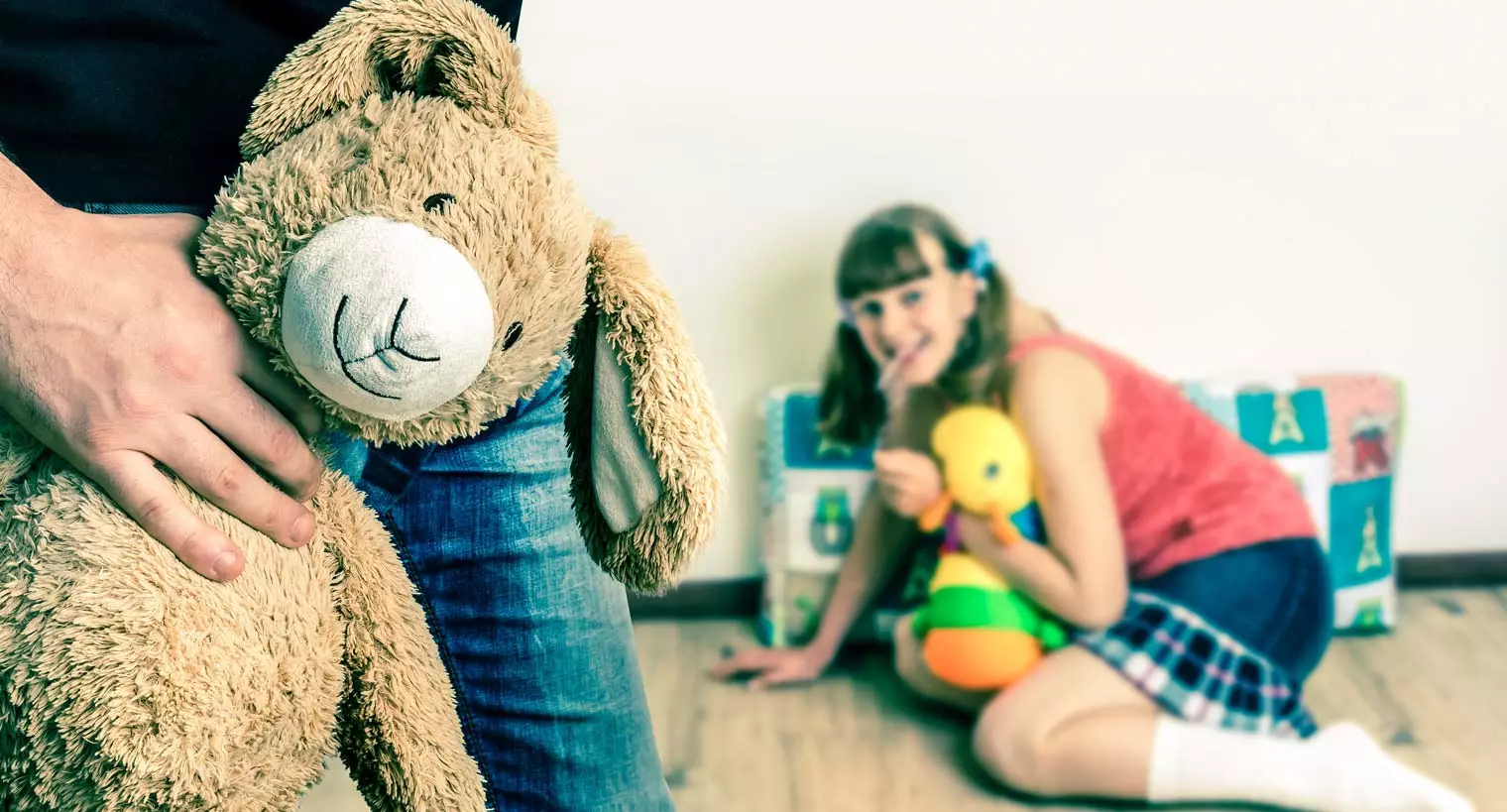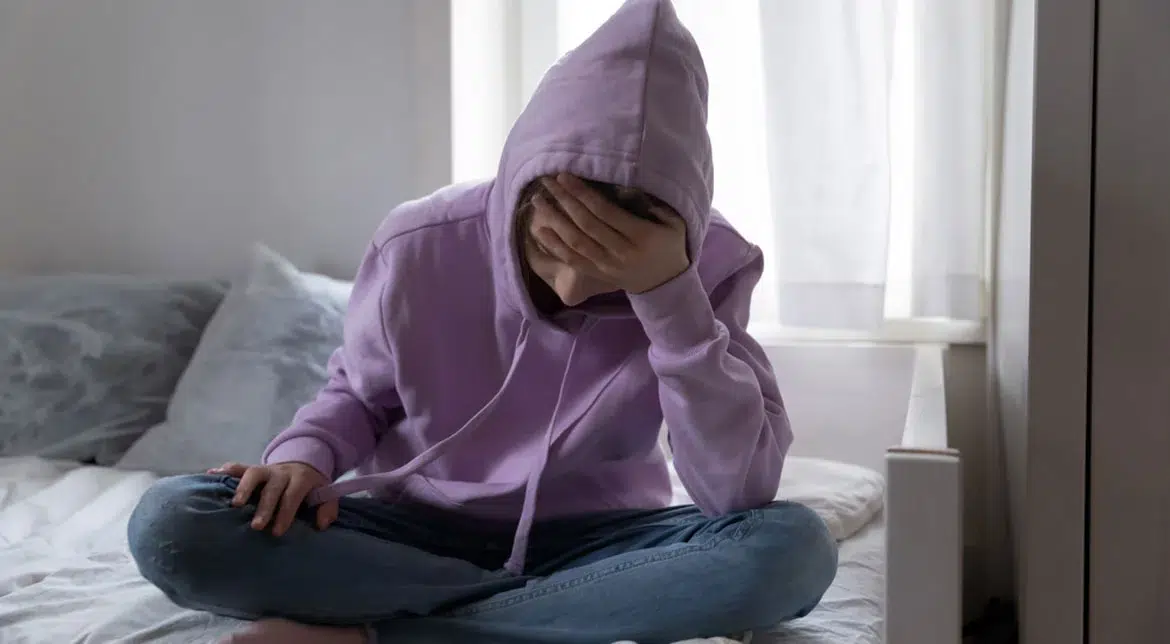Getting Treatment as an Adult CSA Survivor
Table of Contents
Are you a survivor of childhood sexual abuse? Many CSA survivors try to push down traumatic memories in an attempt to deal with them, but this can make them worse. In this article, we go into detail on why it is so important to get treatment for CSA, and how you can do this.
Keep reading to find out more about options for effective treatment of trauma caused by sexual victimization as a child, and how Emerald Isle Health & Recovery can help.
Getting Treatment for Childhood Sexual Abuse
Childhood sexual abuse (CSA) is a traumatic experience that can have devastating psychological effects in adulthood. Those who suffer CSA often struggle with issues such as depression, anxiety, posttraumatic stress disorder (PTSD), suicidal thoughts and behavior, substance abuse and addiction, self-injury, attachment difficulties, feelings of shame and guilt, anger management problems, eating disorders and even physical health complications. Unfortunately, the long-term psychological effects of childhood sexual abuse can be pervasive and enduring.
People who have experienced sexual childhood abuse often develop an exaggerated sense of fear. They fear the consequences of speaking out about their experiences or may simply feel unable to trust anyone else ever again. This can lead to them feeling isolated from others and even to depression. Anxiety is also a common symptom of CSA, as survivors may feel constantly on edge and hyper-vigilant in order to protect themselves from further harm.
24 Hour Trauma Rehab Helpline
Relationship Issues Among Survivors of CSA
It’s also not uncommon for adult survivors of child sexual abuse to struggle with attachment difficulties. They may find it difficult to form healthy and trusting relationships, because of their experiences. This can lead to feelings of loneliness, low self-esteem, guilt or shame, and mistrust toward others.
It’s not uncommon for those who have experienced CSA to struggle with substance abuse and addiction. Self-medicating with drugs or alcohol may seem like the only way to cope with the psychological effects of child sexual abuse. Unfortunately, this often leads to even more problems in adulthood as it can further exacerbate existing issues such as anxiety and depression.
Anger is another common emotion among survivors of child abuse, as they are often overwhelmed by feelings of powerlessness and betrayal. Many feel unable to express their anger appropriately without hurting themselves or others, resulting in a cycle of self-destructive thoughts and behaviors.
Psychological problems caused by child sexual abuse
Child sexual abuse can lead to a variety of emotional problems that can interfere with day-to-day life, including depression, anxiety, post-traumatic stress disorder (PTSD), sleep disturbances, dissociation, and low self-esteem.
Depression
Depression is one of the most common mental health consequences of childhood sexual abuse. Survivors of abuse often experience persistent sadness, hopelessness, and a lack of interest in activities or relationships that were previously enjoyable. They may also struggle with feelings of guilt, shame, and worthlessness, as well as difficulty concentrating and making decisions. Children can become withdrawn and isolate themselves from friends and family.
Anxiety
Anxiety is another common emotional response to child sexual abuse. Survivors may feel restless, tense, and edgy in situations that remind them of the abuse. They may also experience racing thoughts and difficulty sleeping, as well as physical symptoms such as a rapid heart rate, dizziness, or nausea. Anxiety can manifest itself in numerous ways, including avoidance of certain people or places, compulsive behaviors, and panic attacks.
PTSD
Post-traumatic stress disorder (PTSD) is an intense and persistent emotional response to a traumatic event, such as child sexual abuse. Symptoms of PTSD include flashbacks, nightmares, intrusive thoughts, and hyperarousal—a heightened state of alertness or fear. Survivors may feel numb and detached from everyday life and engage in self-destructive behaviors, such as substance abuse or suicidal thoughts.
Sleep problems
Sleep disturbances can be a major problem for those who have experienced child sexual abuse. Survivors may suffer from chronic insomnia, nightmares, and night terrors that disrupt their sleep patterns and leave them feeling exhausted during the day. In extreme cases, they may experience difficulty staying asleep due to fears of being re-traumatized.
Dissociation
Dissociation is another common response to child sexual abuse. This can manifest in a variety of ways, including dissociative amnesia—the inability to remember important information about the abuse—as well as daydreaming, depersonalization, and derealization. It can also lead to changes in self-perception and identity, as well as difficulties with relationships.
Low self-esteem
Finally, childhood sexual abuse can lead to low self-esteem and feelings of inadequacy. Survivors may doubt their abilities, feel unworthy of love or undeserving of success. They may also develop perfectionist tendencies due to a fear of making mistakes or not being able to meet the expectations of others.
Childhood sexual abuse and eating disorders
Sexual child abuse is a catastrophic experience that can have far-reaching effects on victims’ physical and mental health, including the development of eating disorders. Eating issues are complex mental health conditions characterized by extreme disturbances in eating behaviors and preoccupations with body weight and shape.
They include anorexia nervosa, bulimia nervosa, binge eating disorder, and other eating issues. Eating issues can be caused by a combination of factors including genetics, health-related issues, environmental influences, psychological problems such as traumatic experiences, and cultural pressures. For those who have experienced sexual abuse in childhood, the trauma can contribute significantly to the development of an eating disorder.
Why do many CSA survivors develop eating problems?
Sexual child abuse can produce a range of intense emotions, such as shame and guilt, that may lead to the development of an eating disorder. Victims often feel powerless about their situation and struggle to cope with the trauma associated with being abused.
To regain control over their lives, they may turn to extreme behavior, such as restricting food intake, purging, or binging. Eating issues can be seen as a way to cope with the intense emotions brought on by CSA, as they give victims a sense of control over their bodies and environment.
CSA Survivors – Find Help Now!
CSA survivors and trust issues
In addition to feelings of guilt and shame, those who have experienced CSA may also struggle with trust issues, difficulty forming relationships, sexual dysfunction and problematic sexual behavior. Eating issues can be used as a coping mechanism to avoid intimacy and maintain emotional distance. Restricting food intake or binging may give victims of childhood sexual assault a sense of security and help them avoid feeling vulnerable or exposed to further abuse.
CSA and low-self esteem
Child physical abuse can also lead to low self-esteem, which is a major risk factor for developing an eating disorder. Victims of childhood sexual assault may feel inadequate or worthless, which can lead to negative self-talk and feelings of shame. Eating issues can serve as a way to punish the body for perceived inadequacies, providing a sense of control in a seemingly uncontrollable situation.
Eating issues resulting from child sexual assaults can be difficult to treat. The underlying trauma needs to be addressed before any progress is made in treating the eating disorder. Treatment typically focuses on gradually exposing victims to traumatic memories and helping them process the emotions associated with these experiences.
PTSD and childhood sexual abuse
Childhood sexual abuse (CSA) is one of the most devastating forms of trauma a person can experience, for both female and male survivors. While it’s impossible to erase the pain and suffering endured by survivors, understanding how sexual victimization as a child can cause Posttraumatic Stress Disorder (PTSD) in individuals is essential to helping heal.
Many people who have been victims of childhood sexual assaults develop PTSD as a result of their traumatic experiences. The American Psychiatric Association (APA) defines PTSD as a mental health condition that is triggered by a terrifying event or series of events in which severe harm occurred or was threatened. People with PTSD can experience flashbacks, nightmares, self-blame, and intrusive thoughts about the event or events for months or even years after the trauma occurred.
Being sexually abused as a child can cause severe and long-lasting psychological effects that may lead to PTSD, including feelings of fear, isolation, guilt, grief, shame, depression, and anxiety. Many survivors may not want to disclose sexual abuse for fear of being blamed. The symptoms of PTSD can range from mild to debilitating and can be triggered by things that remind the survivor of their trauma or even by seemingly unrelated events.
Factors that increase the likelihood of experiencing PTSD
There are a number of factors that can increase the likelihood that someone who experienced being sexually abused as a child will develop PTSD. These factors include:
- The severity and duration of the abuse
- The relationship between the perpetrator and victim
- Whether or not the abuser was known to the survivor or a family member
- Whether or not the victim had support from family and friends
The psychological effects of being sexually abused as a child can be devastating. Survivors may experience feelings of guilt, shame, fear, depression, anxiety, and anger for years after their abuse has ended. These feelings can interfere with the ability to form healthy relationships in adulthood and lead to difficulty managing emotions and stress.
Physical ailments caused by childhood sexual abuse
Childhood sexual abuse is one of the most horrifying experiences that a person can endure, with lasting effects on physical and mental health. It takes a tremendous amount of courage for survivors to talk about their experiences and seek help. The toll that such trauma can take on someone’s physical health has been well-documented over the years, but it remains an often-overlooked aspect of this issue.
Digestion problems
One of the ways in which childhood sexual abuse manifests itself physically is through issues with digestion, including irritable bowel syndrome (IBS) and chronic abdominal pain. According to several studies, these digestive issues are more common in those with a history of childhood sexual abuse. Additionally, survivors often experience chronic fatigue, headaches, and sleep disturbances—all issues that can be attributed to a history of childhood sexual trauma.
Chronic pain
Another way in which childhood sexual abuse may manifest itself is through increased risk of physical pain. According to studies, survivors of childhood sexual abuse may be more likely to experience chronic musculoskeletal pain and headaches than individuals who do not have a history of such trauma. In addition, some research suggests that childhood sexual abuse may increase the risk for developing fibromyalgia, a condition characterized by widespread chronic pain.
Cardiovascular health
Childhood sexual abuse can also have an impact on cardiovascular health. Those with a history of such trauma are more likely to suffer from high blood pressure or other cardiovascular diseases than those without such a history. This could be due to the stress and anxiety experienced by those who endured childhood sexual abuse, as well as the physiological effects of the trauma itself.
Headaches
Headaches are another common physical symptom of childhood sexual abuse. In fact, research shows that survivors are more likely to suffer from migraines or tension headaches than those who experienced no such trauma in their youth. These headaches can be caused by a number of factors, including chronic stress and anxiety as well as physiological changes that occur as a result of the trauma itself.
Immune system
The psychological effects of childhood sexual abuse can also have an impact on adult survivors’ physical health. Research indicates that survivors have an increased risk of certain illnesses and infections due to their weakened immune systems. Additionally, some studies suggest that those with a history of childhood sexual abuse are at greater risk for various autoimmune disorders such as lupus and multiple sclerosis.
Confidential Trauma Assessment – Call Now!
Getting treatment if you have been sexually abused as a child
If you have experienced sexual abuse as a child, it can be difficult to talk about and seek out help to cope with the trauma. But it is vital that you do so in order to begin the healing process and reclaim your sense of safety and security.
Seeking professional help does not mean you are weak or incapable of coping; instead, it means you are bravely facing the trauma and working to build a more positive future for yourself. Emerald Isle Health and Recovery would be deeply honored if you consider joining us on this journey of recovery. Please reach out to discuss options and what program might work best for your healing, if we cannot match you with an offering at our facility we will happily refer you to another center. It is your recovery and health that matter most.
Finding a CSA therapist or inpatient trauma treatment center
The first step in getting treatment is to find a qualified therapist or counselor who has experience treating survivors of sexual abuse. Ask your primary care doctor, family members, and friends for referrals if necessary. A mental health professional can provide support while helping you to explore your feelings and develop healthy coping skills. You may also find support groups and online resources to be helpful during the healing process.
If you are experiencing more acute symptoms that interfere with daily life and the ability to see a counselor, our facility is proud to offer an array of options. From inpatient CPTSD and CSA survivor programs to intensive outpatient programs or IOP for trauma, reach out to Emerald Isle and we can help you determine if one of our programs is a match for your needs.
Attending your first appointment
It is important to know that there is no pressure or requirement for you to talk about your experience in detail when seeking out help; it will be up to you to decide how much information you want to share and at what pace. You may also find it beneficial to bring a friend or family member with you for your first appointment, as this can provide a sense of safety and security.
Creating a treatment plan
Your therapist or counselor, whether at Emerald Isle, or elsewhere, will work with you to develop an appropriate plan for your treatment that takes into account your individual needs and feelings. This could include individual therapy sessions, group counseling, or a combination of both. It is important to understand that healing takes time and will be an ongoing process; there may be setbacks along the way, but with patience and effort you will find your sense of security and well-being gradually improving.
If you are struggling with any form of self-harm, such as cutting or suicide attempts, it is important that you seek immediate help from a qualified professional.
Same Day Placement for Trauma – Call Now!
CSA treatment to help you reclaim your own life
Now you know why it is so important to get treatment for sexual abuse experienced as a child, it is time to get help. Emerald Isle Health & Recovery help victims of CSA deal with the trauma they experienced so they can leave their trauma in the past and live a full life.
Please reach out for a consultation today, it is completely discreet and confidential. Emerald Isle also accepts most major forms of insurance, including many AHCCCS policies, so treatment is likely more affordable than you imagine.
Give yourself the opportunity for a life-changing experience, and call today to find options for childhood trauma treatment and recovery!





